#Tsarist Russia
Text
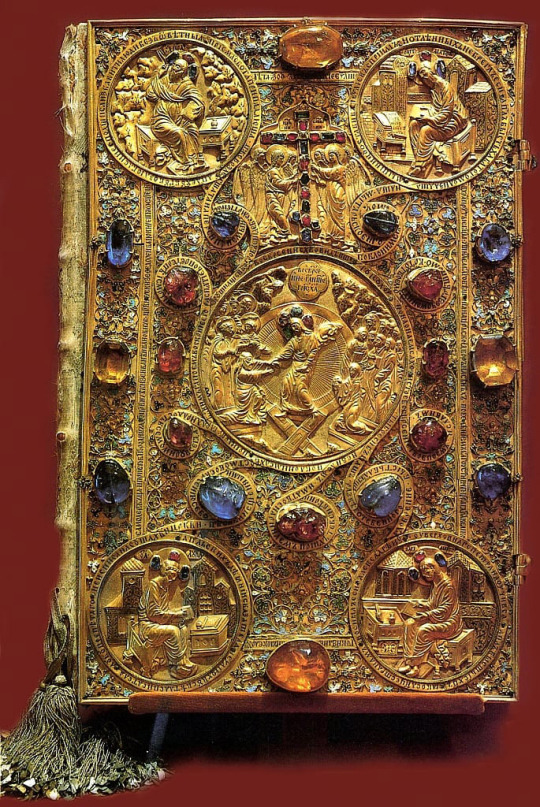
THE GOSPEL BOOK OF TSAR IVAN IV, THE TERRIBLE (1571)
Gold filigree, pearls, and precious stones.
#beautiful books#book blog#books books books#book cover#books#illustrated book#gospel#ivan the terrible#jeweled#treasure binding#book binding#book design#christian bible#new testament#16th century#russia#tsarist russia
284 notes
·
View notes
Text
The heights of the Romanov Family
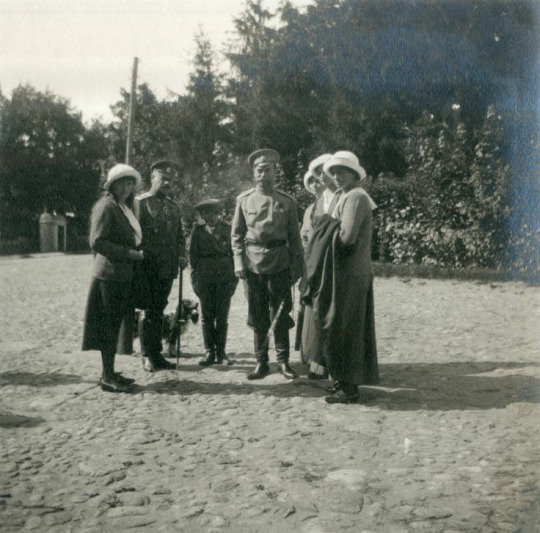


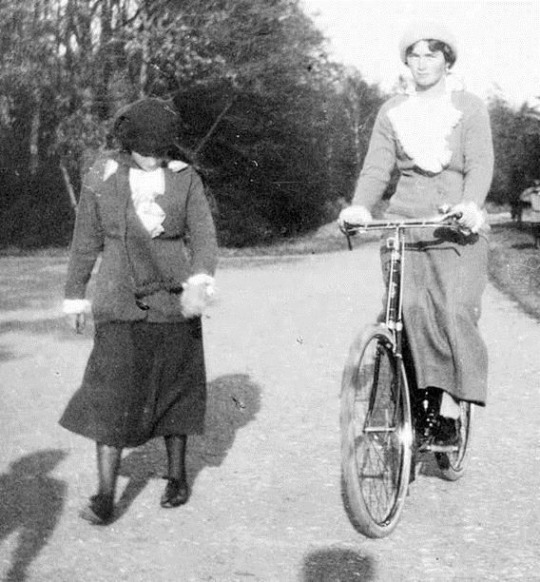


Height (in order of tallest to shortest)
Tatiana- 175cm (5ft 8/5ft9)
Maria 172cm (5ft 7/5ft8)
Tsar Nicholas II 170cm (5ft6)
Alexandra 170cm (5ft6)
Alexei 168cm (5ft6)
Olga 165cm (5ft 4 /5ft5)
Anastasia 157cm (5ft 1 /5ft2)
#russian history#tsarist russia#tatiana nikolaevna#maria nikolaevna#olga nikolaevna#anastasia romanov#alexei nikolaevich#alexandra feodorovna#romanov#otma#height check
36 notes
·
View notes
Text

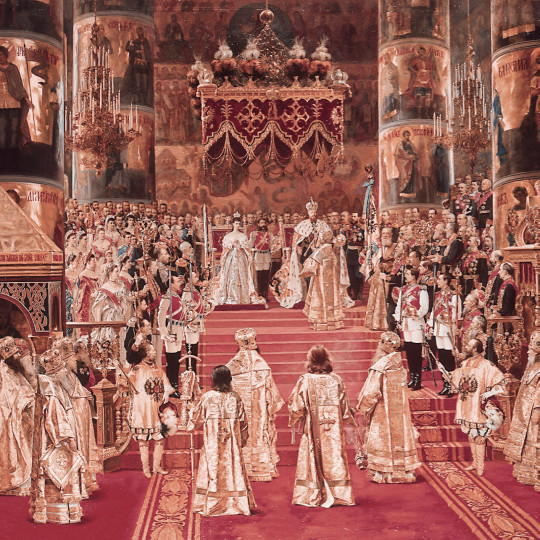

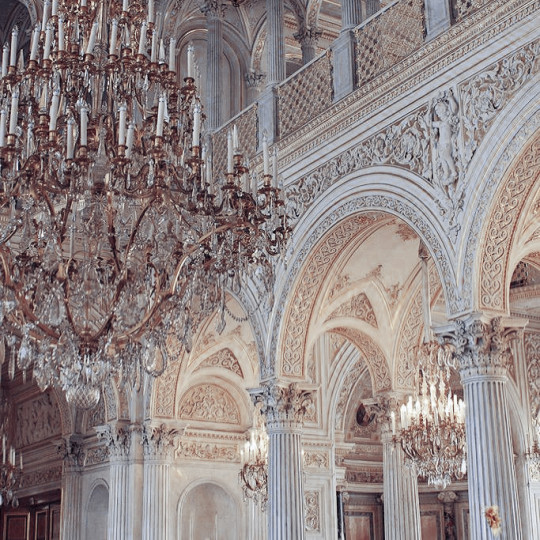


Russia! My astonished child's eyes see huge palaces, beautiful parks, fountains, gardens, amazing gatherings of relatives, military parades, religious services in churches glittering with gold, jewels so breathtaking you can hardly believe they are real [... ] My eyes also see long corridors, vestibules, and halls, of a size beyond compare, opening one into another, and our feet trotting timidly over wide stretches of floors, so unbounded and polished, that we seemed to walk on ice. And everywhere, a very characteristic smell: a mixture of turpentine, Russian leather and cigarette smoke, with a fragrance, unique in its own way, that distinguished the imperial palaces. Imperial is the right word, fantastic, like in fairy tales [...] every superlative is at its place in that Russia of the Tsars, that Russia full of splendour, which today is no more...
- Queen Marie of Romania, “Story of My Life”
#imperial russia#russian imperial family#tsarist russia#maria feodorovna#alexandra feodorovna#marie of romania#nicholas ii#tsar nicholas ii#otma#maria pavlovna the elder#grand duchess vladimir#grand duchess olga#grand duchess tatiana#grand duchess elizabeth feodorovna#grand duchess anastasia#olga romanova#tatiana romanov#maria romanov#anastasia nikolaevna#the romanovs#romanov family#romanov#romanov dynasty
425 notes
·
View notes
Text
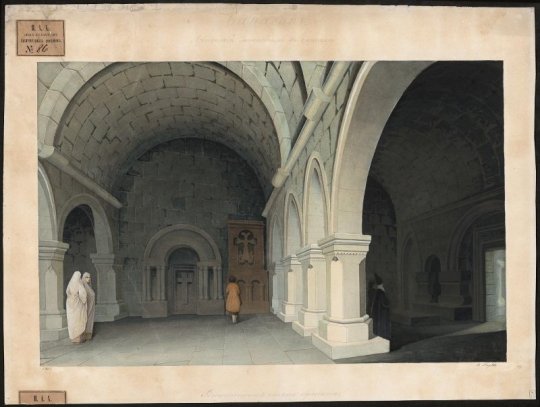




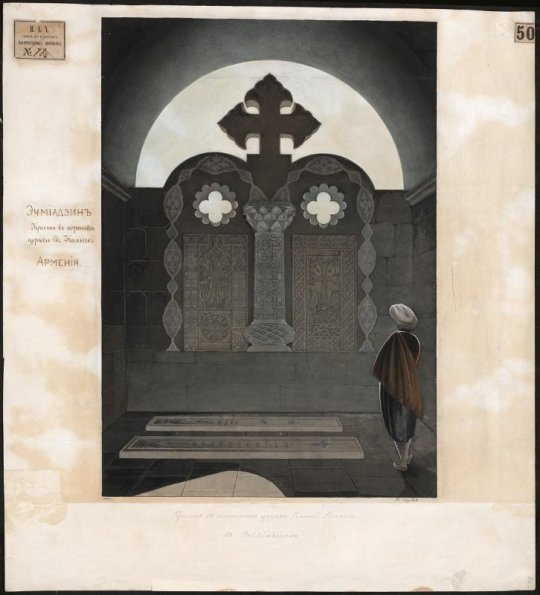
1. Interior view of the first portico of the church of the Sanahin monastery in Armenia.
2. Interior view of the second portico of the church of the Sanahin monastery in Armenia.
3. Church with a spring, carved into the rock in Geghard.
4. View of the tomb with the coat of arms of the Proshyan princes, carved into the rock in Geghard.
5. Ground porch in Geghard (Armenia).
6. Interior view of the vestibule of the Church of St. Gayane in Vagharshapat in Armenia.
By Petr Norev, 1850. Scientific-research Museum of the Russian Academy of Arts.
59 notes
·
View notes
Text
Russian Peasants & Religion

Russian Peasants, late 19th century.
The religiosity of the Russian peasant has been one of the most enduring myths -- along with the depth of the Russian soul -- in the history of Russia. But in reality the Russian peasant has never been more than semi-detached with the Orthodox religion. Only a thin coat of Christianity had been painted over his ancient pagan folk-culture.
To be sure, the Russian peasant displayed a great deal of external devotion. He crossed himself continually, pronounced the Lord's name in every other sentence, regularly went to church, always observed the Lenten fast, never worked on religious holidays, and was even known from time to time to go on pilgrimage. to holy shrines.
Slavophile intellectuals, like Dostoevsky or Solzhenitsyn, might wish to see this as a sign of the peasant's deep attachment to the Orthodox faith. And it is certainly true that most of the peasants thought of themselves of Orthodox. If one could go into a Russian village at the turn of the century and ask its inhabitants who they were, one would probably receive the reply: 'We are Orthodox and from here.'
But the peasants' religion was far from the bookish Christianity of the clergy. They mixed pagan cults and superstitious magic and sorcery, with their adherence to Orthodox beliefs. This was the peasants' own vernacular religion shaped to fit the needs of their precarious farming lives.
A People's Tragedy: The Russian Revolution, 1891–1924, Orlando Figes
#Russian History#History#Folk culture#folk religion#Imperial Russia#Tsarist Russia#orthodox christianity
37 notes
·
View notes
Text
I hope I’m just late to the game on this. But does anyone else think that Tsar Alexander I and Napoleon Bonaparte would have made a fantastic (albeit tragic) gay ship or have I just completely lost my mind.
I mean look at this.
The very first thing Alexander said to Napoleon was probably well-calibrated: “I hate the English as much as you do”. Their meeting lasted two hours. Despite waging wars against each other the two Emperors were very much impressed and fascinated by one another. “Never,” said Alexander afterward, “did I love any man as I loved that man.”
And this.
Napoleon was charmed by Alexander, describing him as “especially handsome, like a hero with all the graces of an amiable Parisian.”
And wow.
“If Alexander were a woman,” Napoleon wrote to Josephine, “I would make him my mistress.”
There’s even fanart of them from the 1800′s.
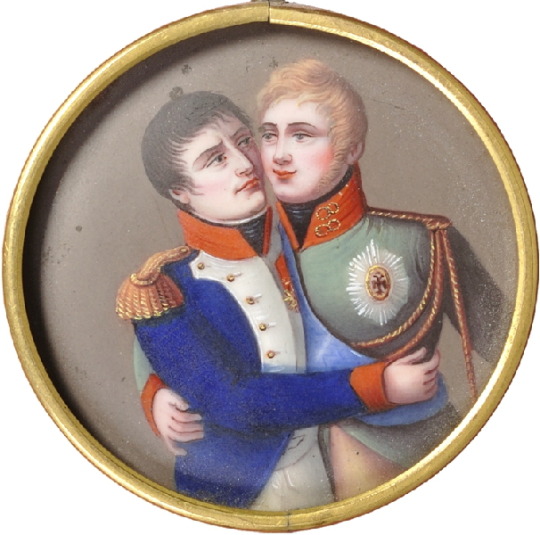
This complicated historic bromance has Enemies-to-Lovers-to-Enemies written all over it.
#history#napoleon bonaparte#tsarist russia#shipping historical figures#tsar alexander i#historical figures#napoleonic wars#napoleonic era#napoleonic history#gay gay homosexual gay#i'm sorry i haven't slept#fic research is driving me mad#lmao help
177 notes
·
View notes
Text
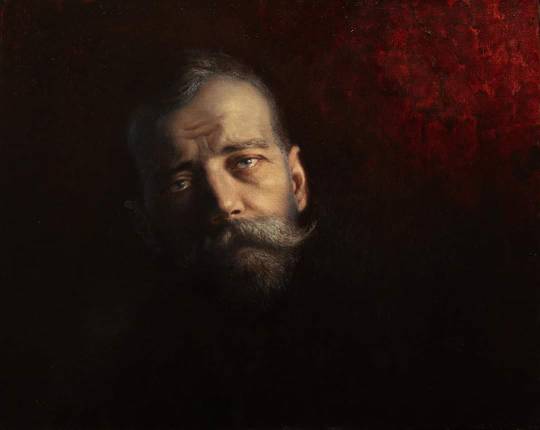
“I was born on the feast-day of St. Job the Long-Suffering. I am aware that I am fated to undergo terrible tests and shall not obtain a reward here on earth. May God's Will be done.”
— Saint Tsar-Martyr Nicholas II
Image: Vladimir Kirieev, Molenie (2015)
63 notes
·
View notes
Note
May I know about alexei's anecdotes from stavka?
Hi there! Of course! Lots of funny ones here, and some touching ones too.
Alexei spent a lot of time with the foreign ambassadors, playing with them outside and sitting on on their lunches. He seemed to be a great favourite with them, and definitely made HQ life a lot more fun. These ambassadors were from France, England, Japan, and further afield.
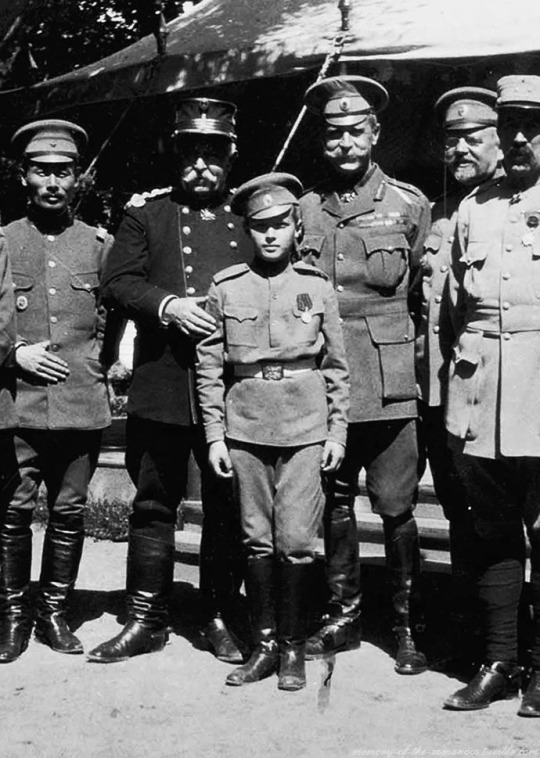
There are also these fun and cute videos of Alexei at Stavka with Joy, playing with her. See them here. There are lots of videos of Alexei at Stavka, quite a few of him looking at the camera, pointing to it, and smiling, as well as playing and spinning around.
He wrote in letters to his mother often about Joy and the cats that were at HQ, and playing in the woods.
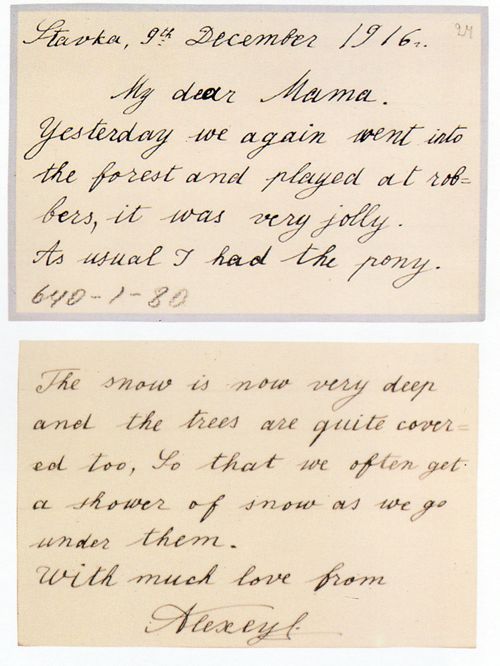
'Stavka, 9th December 1916
My dear Mama.
Yesterday we again went into the forest and played at the robbers, it was very jolly. As usual I had the pony. The snow is now very deep and the trees are quite covered too, so that we often get a shower of snow as we go under them.
With much love from
Alexey'
-----
John Hanbury-Williams, who was head of the British unit at Stavka, had as good relationship with Alexei and wrote about him fondly in his memoirs and diaries, that can be read here. Sadly, Hanbury-Williams' son died in combat, and he wrote about how Alexei came and found him in his room and sat with him so he wouldn't feel lonely after receiving the news.
'20th December 1916. I heard the news of death of my eldest son, which was not unexpected. I was in the ante-room next the Emperor's before dinner, when, being alone, the little Tsarevitch came out of his father's room, ran up to me and sat next me, saying : ' Papa told me to come to sit with you as he thought you would feel lonely to-night.'
-------
Alexei also got up to a *lot* of mischief!
From John Hanbury-Williams:
14th November 1915. ...As I was talking the little Tsarevitch, who is full of fun and mischief, came and grabbed my coat-tails, somewhat upsetting the dignity of the business with his father, to whom he is devoted...'
'20th May 1916. The Emperor leaves for Odessa to see two newly formed divisions, and we have asked him to bring back the little Tsarevitch, who is a great favourite with us all, and a most happy-natured, attractive little fellow'
10th July 1916. The Tsarevich is here and in great spirits. He dragged some of us off after lunch in the tent to a round fountain in the garden which has porpoise heads all round it, with two holes in each to represent the eyes. The game was to plug up these holes with one's fingers, then turn on the fountain full split and suddenly let go. The result was that I nearly drowned the Emperor and his son, and they returned the compliment, and we all had to go back and change, laughing till we nearly cried, a childish amusement no doubt, but which did one good all the same.
'29th November 1916. After lunch to-day had a regular football scrimmage with the little Tsarevitch, who was in wild spirits'
A letter from Nicholas to Alexandra: "[I] have come in from the garden with wet sleeves and boots as Alexei sprayed us at the fountain. It is his favorite game […] peals of laughter ring out. I keep an eye, in order to see that things do not go too far."
For more letters between Nicholas and Alexandra, you can check out this book - it's fab!
-----
Pierre Gilliard, the children's French tutor, wrote about how he and Alexei would go off on car rides throughout the countryside during the day, although on one occasion the car was surrounded by peasants excited to see the heir. You can read more from Gilliard here.
There is also a fun anecdote from Sydney Gibbes, the children's English tutor, about Alexei grabbing a pair of scissors and hiding behind a curtain before cutting off a chunk of his hair, but I think this was before teaching at Stavka.
-----
And here are some fun photos of him at Stavka, for good measure :)


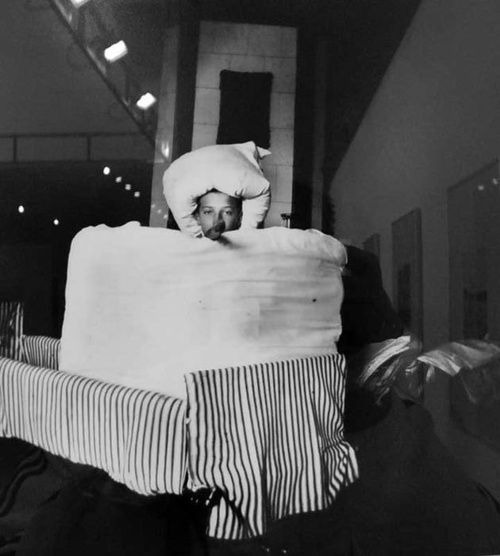
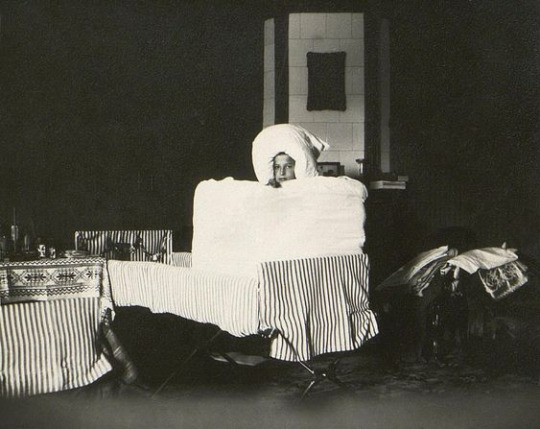
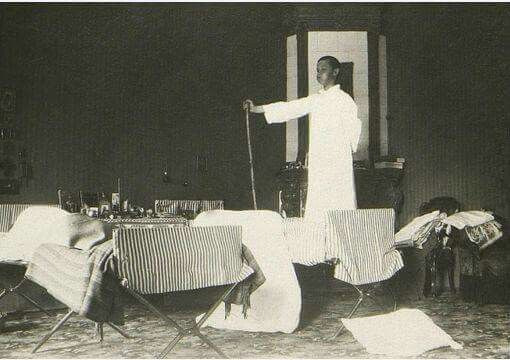

Albums showing Alexei and his sisters having fun at Stavka can be seen here:
Tatiana's 1916 album - just a warning some of the earlier pages has photos of operations and injuries at the hospital
Anastasia's 1915 - 1916 album
Nicholas's 1913-1916 album - these have the best photos
I hope this was helpful!
#Alexei Nikolaevich#Alexei Romanov#Nicholas II#Romanov family#q#ask#answered#anon#HQ#Stavka#1915#1916#1917#sources#Gilliard#Hanbury-Williams#ambassadors#tsar#tsarist russia#Romanovs#Tsarevich#albums#imperial russia#mogilev#wwi#smiling#happy
33 notes
·
View notes
Text
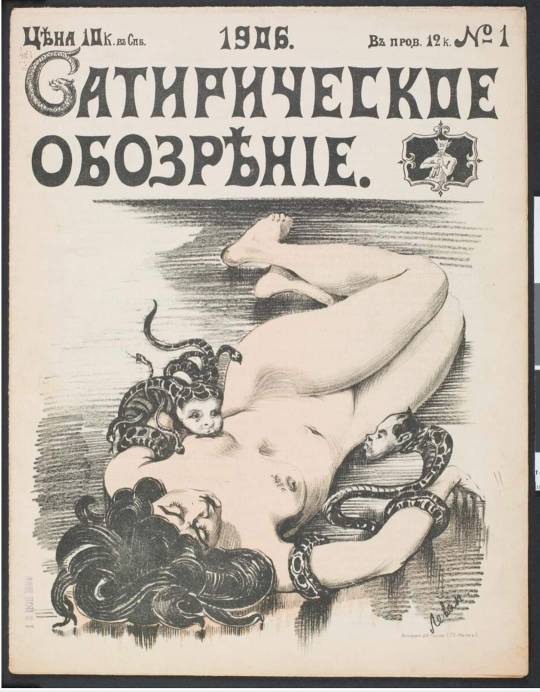
"Satirical Overview"
(If I have the translation right)
3 notes
·
View notes
Photo
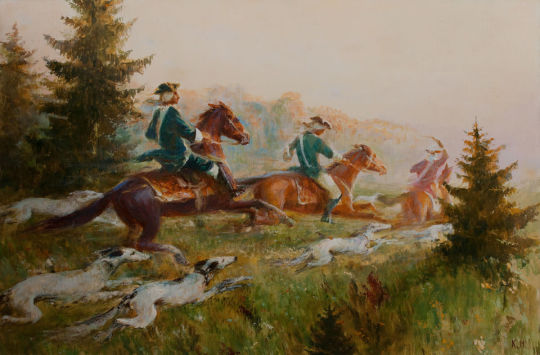
Artist Nikolai Komarov "Royal Hunt" 60x90 cm, oil on canvas
In his painting, the artist refers to the history of Tsarist Russia in the 18th century, choosing as a subject and poeticizing the everyday life of the “gallant age”. The picture, combining the dynamics and lyricism of the autumn landscape, depicts horsemen with their greyhounds rushing through the forest, dissolving as they move away in the dawn fog.
12 notes
·
View notes
Text

(Photo from the Romanovs' 1903 ball at the Winter Palace)
"Three perceived principles of Muscovite tsardom appealed to the Romanovs in their final years. The first was the notion of patrimonialism whereby the Tsar was deemed literally to own the whole of Russia as his private fiefdom (votchina) in the manner of a medieval lord. ...
The second principle of Muscovy was the idea of personal rule: as the embodiment of God on earth, the Tsar's will should be unrestrained by laws or bureaucracy and he should be left to rule the country according to his own consciousness of duty and right. ...
Lastly, there was the idea of a mystical union between the Tsar and the Orthodox people, who loved and obeyed him as a father and a god. It was a fantasy of paternal rule, of a golden age of popular autocracy, free from the complications of a modern state."
Figes, Orlando. A People’s Tragedy: The Russian Revolution 1891-1924. The Bodley Head, 2017.
#Romanov#Romanovs#The Romanovs#Romanov tercentennial#Nicholas II#Tsar Nicholas II#Alexandra Feodorovna#Russian History#Imperial Russia#Russian Imperial Family#Tsarist Russia
3 notes
·
View notes
Text

THREE VASSAR GIRLS IN RUSSIA AND TURKEY by Elizabeth W. Champney (Boston: Estes and Lauriat, 1889)



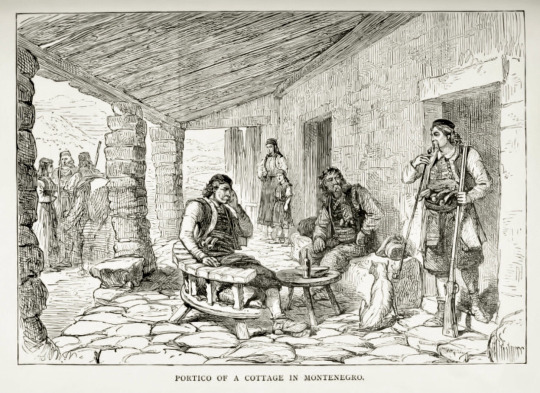

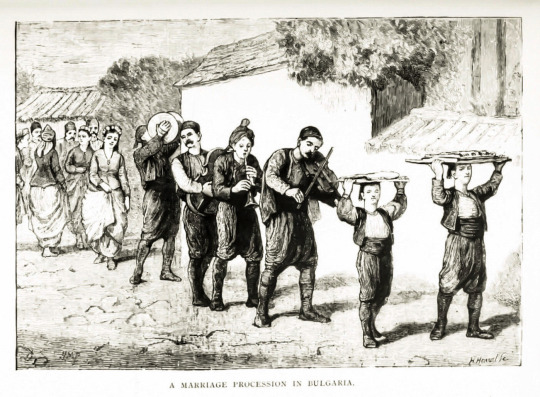

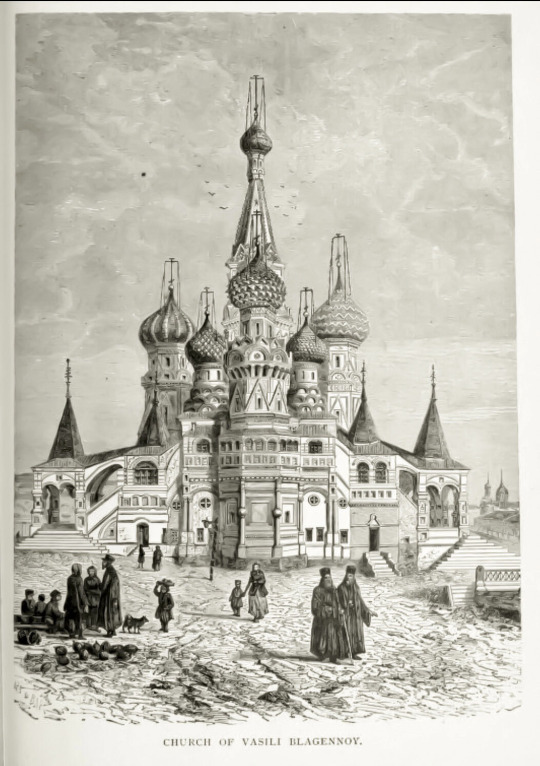
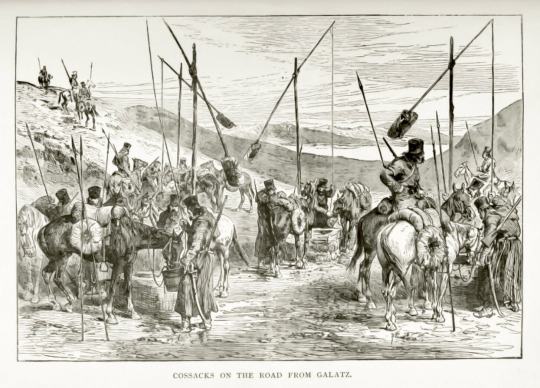
source
#beautiful books#book blog#books books books#book cover#books#vintage books#illustrated book#victorian era#russia#tsarist russia#book design#russian culture
18 notes
·
View notes
Text

Empress Alexandra Feodorovna with her daughters Grand Duchesses Tatiana and Anastasia as they depart from the island of Ravitsa, September 9, 1906.
63 notes
·
View notes
Text

“'Tell me this, Yefim Ivanich. What about the Bolsheviks? Have they got things right or not?'
Jerking up his eyebrow and wrinkling his nose humorously, Izvarin gave a chuckle.
‘Got things right? Ha-ha . . . You’re like a newborn babe, my dear fellow. The Bolsheviks have their program, their prospects and aspirations. The Bolsheviks are right from their point of view, and we are right from ours. D'you know what the Bolshevik Party is actually called? No? But surely you should know that? The Russian Social Democratic Workers' Party! Understand? The Workers! At the moment they are flirting with the peasants and Cossacks, but the main thing with them is the working class. They'll bring liberation to the working class and a new, perhaps even worse, oppression to the peasantry. In real life it never works out that everyone gets an equal share. If the Bolsheviks get the upper hand, it'll be good for the workers and bad for the rest of us. If the monarchy returns, it'll be good for the landowners and the like, and bad for the rest. We don't want either. What we need is our own form of government, and above all to be rid of all political guardians, whether it's Kornilov, Kerensky or Lenin. We'll manage on our own lands without these figureheads - God spare us from our friends and we'll deal with our enemies ourselves.'
'But most of the Cossacks feel drawn towards the Bolsheviks. D'you know that?'
‘Grisha, old chum, try to grasp the main thing. Now the Cossacks and the peasants are going the same way as the Bolsheviks. Do you know why?'
'Because . . . ‘ Izvarin wriggled his nose until it was almost round, and laughed ‘Because the Bolsheviks are for peace, for immediate peace, and the Cossacks are absolutely fed up with war!’
He gave himself a ringing slap on his taut brown neck and, straightening his raised eyebrow, cried, 'That's why the Cossacks have a smell of Bolshevism about them and are keeping in step with the Bolsheviks. But! But as soon as the war's over and the Bolsheviks reach out to grab the Cossacks' land, the roads of the Cossacks and the Bolsheviks will part! That's proven and historically inevitable. Between the existing structure of Cossack life and socialism - the ultimate form of the Bolshevist revolution - there is an impassable abyss.’
‘What I say is,' Grigory mumbled, 'that I don't understand a thing. I can't make head or tail of it. I'm as lost as if I'd been caught out in the steppe in a snowstorm.'
‘You won't get out of it as easily as that! Life will make you sort things out. It'll force you to take sides.'” (p. 476, 477)
#sholokhov#mikhail sholokhov#quiet flows the don#russia#cossacks#tsarist russia#soviet#bolsheviks#communist#nobel prize#world war 1#wwi#civil war#russian civil war#russian revolution
3 notes
·
View notes
Text
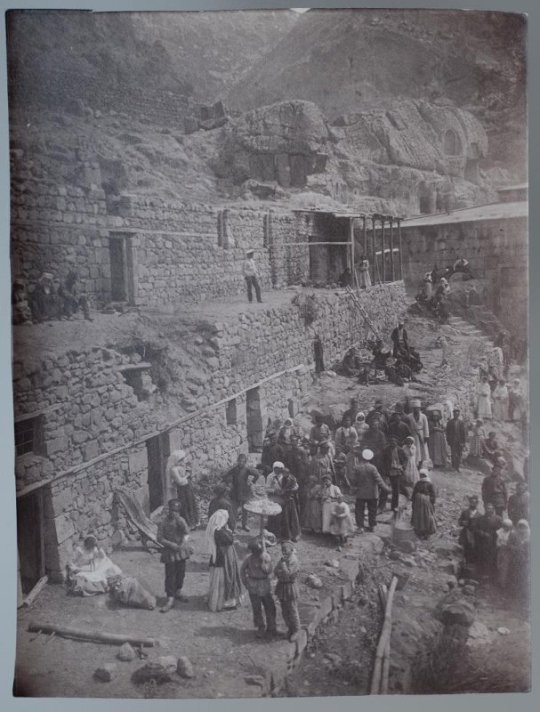
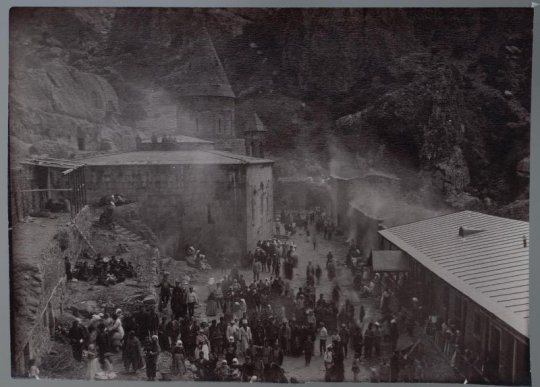
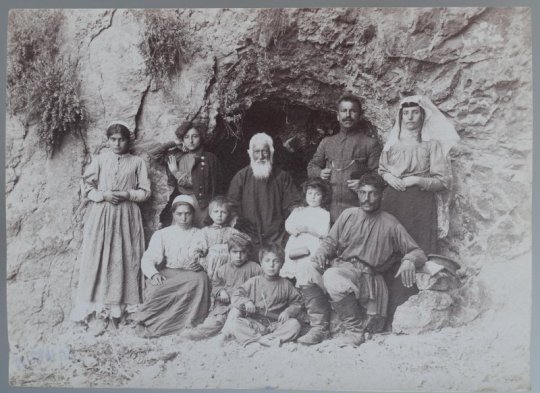
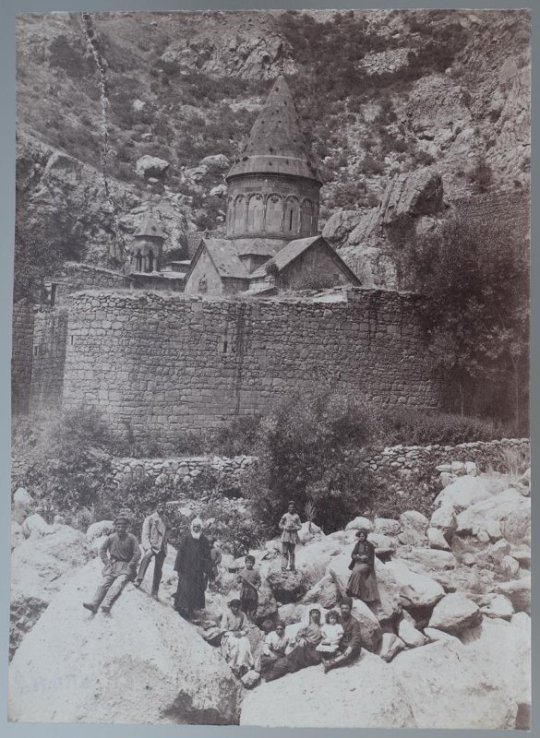
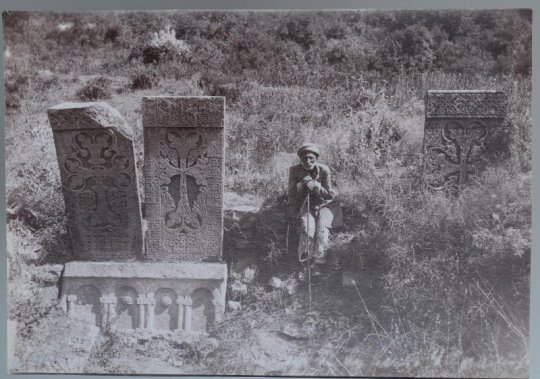
1/2 . Holiday in Monastery courtyard.
3. The abbot of the monastery with relatives.
4. View from the east.
5. Khachkars.
Hayravank, Armenia, 1908. State Historical Museum, Moscow.
35 notes
·
View notes
Text
Provincial Governors & Land Captains
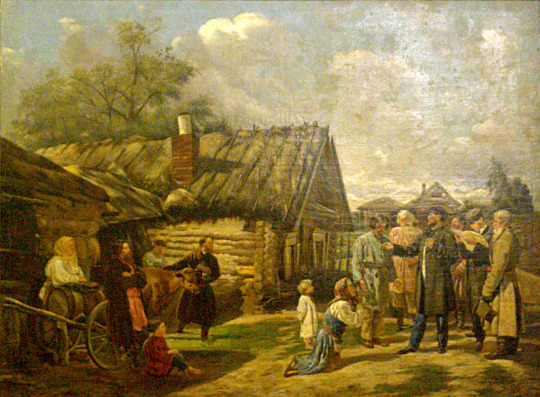
Сбор недоимок, Vasiliy Pukirev, 1869-1870.
The counter-reforms of Alexander's reign, of which the 1890 Statute was a cornerstone, were essentially an attempt to restore the autocratic principle to local government. The provincial governor, whose powers over the zemstvos and the municipal bodies had been greatly increased by the counter-reforms, was to play the role of a tsar in miniature.
The same idea lay behind the institution of the land captains (zemskie nachal'niki) as a result of another counter-reform in 1889. They remained the central agents of the tsarist regime in the countryside until 1917, although after the 1905 Revolution their powers were considerably diluted. Appointed by the provincial governors and subordinated to the Ministry of the Interior, the 2,000 land captains, mainly from the gentry, were given a wide range of executive and judicial powers over the peasants, to whom they were known as the 'little tsars'.
A People's Tragedy: The Russian Revolution, 1891–1924, Orlando Figes.
8 notes
·
View notes